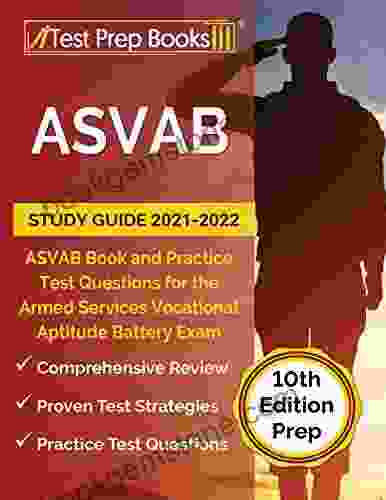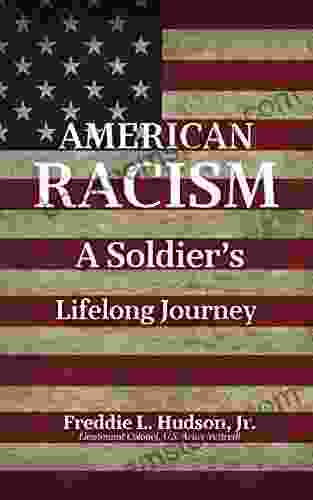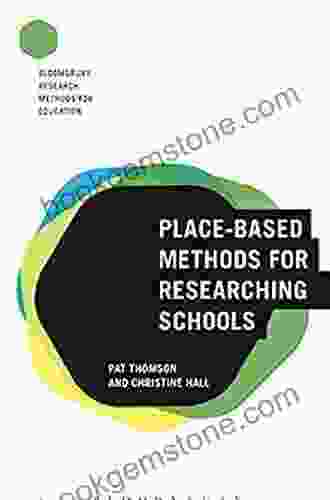Place-Based Methods for Researching Schools: Connecting Contexts, Communities, and Classrooms

Place-based research is an approach to research that emphasizes the importance of location and context in understanding social phenomena. This approach has been increasingly used in the study of schools, as researchers have come to recognize the importance of the physical, social, and cultural context of schools in shaping their students' experiences and outcomes.
Place-based methods for researching schools can take a variety of forms. Some researchers use qualitative methods, such as ethnography and case study, to explore the lived experiences of students and teachers in particular schools and communities. Other researchers use quantitative methods, such as surveys and statistical analysis, to examine the relationship between school context and student outcomes. Still other researchers use mixed methods, combining qualitative and quantitative methods to provide a more comprehensive understanding of the complex interplay between place and education.
5 out of 5
| Language | : | English |
| File size | : | 1983 KB |
| Text-to-Speech | : | Enabled |
| Screen Reader | : | Supported |
| Enhanced typesetting | : | Enabled |
| Word Wise | : | Enabled |
| Print length | : | 293 pages |
No matter what methods they use, place-based researchers share a common commitment to understanding the unique ways in which schools are shaped by their surrounding communities. This commitment is reflected in the following principles of place-based research:
- Start with the local context. Place-based research begins with a deep understanding of the local context in which a school is located. This includes the physical environment, the social and cultural makeup of the community, and the history of the school and its surrounding area.
- Use multiple methods. Place-based research often uses a variety of methods to collect data about schools and their communities. This helps to provide a more comprehensive understanding of the complex interplay between place and education.
- Involve community members. Place-based research involves community members in the research process. This helps to ensure that the research is relevant to the community and that its findings are used to improve the lives of local residents.
- Disseminate findings back to the community. Place-based researchers share their findings back to the community in a variety of ways, such as through public presentations, community meetings, and reports. This helps to build trust between researchers and community members and to ensure that the research is used to improve the community.
Place-based research has a number of advantages over traditional research methods. First, place-based research provides a more holistic understanding of schools and their communities. By taking into account the physical, social, and cultural context of schools, place-based research can help researchers to understand how these factors shape students' experiences and outcomes.
Second, place-based research is more likely to be relevant to the needs of local communities. By involving community members in the research process, place-based researchers can ensure that their research is addressing the issues that are most important to the community.
Third, place-based research is more likely to lead to positive change. By building trust between researchers and community members, place-based research can create a foundation for collaboration and action. This can lead to the development of new programs and policies that improve the lives of students and families.
For all of these reasons, place-based research is a valuable tool for researchers who are interested in understanding schools and their communities. By using place-based methods, researchers can gain a deeper understanding of the complex interplay between place and education, and they can use this understanding to improve the lives of students and families.
Here are some examples of place-based research methods that have been used to study schools:
- Ethnography: Ethnography is a qualitative research method that involves observing and participating in the everyday life of a group of people. Ethnographic studies of schools have explored a variety of topics, such as the social dynamics of classrooms, the ways in which teachers and students interact, and the impact of school culture on student learning.
- Case study: Case study is a qualitative research method that involves in-depth study of a particular case. Case studies of schools have explored a variety of topics, such as the impact of school leadership on student outcomes, the ways in which schools respond to diversity, and the challenges of school improvement.
- Survey research: Survey research is a quantitative research method that involves collecting data from a sample of people using questionnaires or interviews. Survey research has been used to study a variety of topics related to schools, such as the relationship between school context and student outcomes, the impact of school climate on student learning, and the perceptions of parents and teachers about schools.
- Statistical analysis: Statistical analysis is a quantitative research method that involves using statistical techniques to analyze data. Statistical analysis has been used to study a variety of topics related to schools, such as the relationship between school funding and student achievement, the impact of school size on student outcomes, and the distribution of resources across schools.
- Mixed methods: Mixed methods research is a research design that combines qualitative and quantitative methods. Mixed methods studies of schools have explored a variety of topics, such as the impact of school reform on student learning, the ways in which schools engage with their communities, and the challenges of teacher retention.
The choice of research method depends on the specific research question being asked. However, all place-based research methods share a common goal: to understand the unique ways in which schools are shaped by their surrounding communities.
Place-based research is a valuable tool for researchers who are interested in understanding schools and their communities. By using place-based methods, researchers can gain a deeper understanding of the complex interplay between place and education, and they can use this understanding to improve the lives of students and families.
5 out of 5
| Language | : | English |
| File size | : | 1983 KB |
| Text-to-Speech | : | Enabled |
| Screen Reader | : | Supported |
| Enhanced typesetting | : | Enabled |
| Word Wise | : | Enabled |
| Print length | : | 293 pages |
Do you want to contribute by writing guest posts on this blog?
Please contact us and send us a resume of previous articles that you have written.
 Best Book
Best Book Page Flip
Page Flip Bookshelf
Bookshelf Literary loom
Literary loom Chapter
Chapter Bookish
Bookish PageTurner
PageTurner Bibliophile
Bibliophile Story
Story Inkwell
Inkwell Bookworm
Bookworm Labyrinth
Labyrinth Plot Twist
Plot Twist Prose
Prose Paperback
Paperback Storyteller
Storyteller Sanctuary
Sanctuary Fiction
Fiction Reading
Reading Chronicle
Chronicle Read
Read Elizabeth Hay
Elizabeth Hay Markes E Johnson
Markes E Johnson Rich Polanco
Rich Polanco Bob Shepton
Bob Shepton Kaplan Test Prep
Kaplan Test Prep Rupika Raj
Rupika Raj Rochelle Knight
Rochelle Knight Sigurd F Olson
Sigurd F Olson Manny Serrato
Manny Serrato Robert N Rosen
Robert N Rosen Miles Martin
Miles Martin Tim Bauerschmidt
Tim Bauerschmidt Eric Newman
Eric Newman Lorelou Desjardins
Lorelou Desjardins Cosmic Kids Publications
Cosmic Kids Publications John Keahey
John Keahey Kevin Biggar
Kevin Biggar Robert Finch
Robert Finch Katrina Lawrence
Katrina Lawrence David Archer
David Archer Lawrence Durrell
Lawrence Durrell Ilona Andrews
Ilona Andrews Marie Benedict
Marie Benedict Felicie Williams
Felicie Williams John Germov
John Germov Nielson Phu
Nielson Phu Sterling Test Prep
Sterling Test Prep Brooks Fiesinger
Brooks Fiesinger Smart Reads
Smart Reads Gina Wisker
Gina Wisker Rebecca E F Barone
Rebecca E F Barone Michelle Lee
Michelle Lee Lesley Jane Eales Reynolds
Lesley Jane Eales Reynolds Joseph Phillips
Joseph Phillips Rachel Russ
Rachel Russ Harley Wylde
Harley Wylde Lally Brown
Lally Brown Kanchan Suyash
Kanchan Suyash Morgan Stafford
Morgan Stafford Vince Kotchian
Vince Kotchian Richard Palmer
Richard Palmer Lonely Planet
Lonely Planet Paul Watson
Paul Watson Colson Whitehead
Colson Whitehead Steve Schwartz
Steve Schwartz Rusty Young
Rusty Young Richard Kadrey
Richard Kadrey Wickaninnish Inn
Wickaninnish Inn Garry Burnett
Garry Burnett Zanna Sloniowska
Zanna Sloniowska Stuart Woods
Stuart Woods Ged Wilmot
Ged Wilmot Brien Foerster
Brien Foerster Um A Yube
Um A Yube Christopher D Nolan
Christopher D Nolan Fatime Losonci
Fatime Losonci Luca Vargiu
Luca Vargiu Prepvantage
Prepvantage Michelle Larkin
Michelle Larkin Gregg Hurwitz
Gregg Hurwitz Douglas J Gould
Douglas J Gould Businessnews Publishing
Businessnews Publishing Preston George Pysh
Preston George Pysh Andy Russell
Andy Russell Neha Gupta
Neha Gupta Bob Mckenzie
Bob Mckenzie Benjamin P Bowser
Benjamin P Bowser Fred Ray Lybrand
Fred Ray Lybrand Christophe P Yerling Ph D
Christophe P Yerling Ph D Fiona Gibson
Fiona Gibson Seyyed Hossein Nasr
Seyyed Hossein Nasr Narendra Kumar V
Narendra Kumar V Jason Hogan
Jason Hogan Various
Various Kayla Chalko
Kayla Chalko Emily Colin
Emily Colin Margaret K Nydell
Margaret K Nydell John Merriam
John Merriam Nicholas Bjorn
Nicholas Bjorn Karsten Heuer
Karsten Heuer George Orwell
George Orwell Ken Chaddock
Ken Chaddock Steven Cowie
Steven Cowie John Hiker
John Hiker Monica Sorrenson
Monica Sorrenson W E B Griffin
W E B Griffin J R Haseloff
J R Haseloff Nigel Cliff
Nigel Cliff Kevin Marx
Kevin Marx Julia Alvarez
Julia Alvarez C E Flores
C E Flores Lynda Field
Lynda Field Doug Gaskill
Doug Gaskill Tracy Johnston
Tracy Johnston Osasumwen Asoro
Osasumwen Asoro Garry J Shaw
Garry J Shaw Supersummary
Supersummary Seth Abramson
Seth Abramson Noor De Olinad
Noor De Olinad Leo Books
Leo Books R Raman
R Raman Pamela K Lamb
Pamela K Lamb Greg Gilhooly
Greg Gilhooly Scott Butler
Scott Butler Ross Bonander
Ross Bonander John Murray
John Murray Keri Bloomfield
Keri Bloomfield Laura Lincoln Maitland
Laura Lincoln Maitland Mark Greaney
Mark Greaney Eric Engle
Eric Engle Stan Skrabut
Stan Skrabut Quick Reads
Quick Reads Lisa Kleypas
Lisa Kleypas Wilfred M Mcclay
Wilfred M Mcclay Jeffrey Alford
Jeffrey Alford Kim Heldman
Kim Heldman Savage Greenboro
Savage Greenboro Ross Blankenship
Ross Blankenship Balazs Csigi
Balazs Csigi Narasimha Karumanchi
Narasimha Karumanchi Nisha Garg
Nisha Garg Sara Wheeler
Sara Wheeler Nick Smith
Nick Smith Dr Ray Makar
Dr Ray Makar Gerald Hausman
Gerald Hausman One Edition Kindle Edition
One Edition Kindle Edition Shanta Kumar
Shanta Kumar Topher Donahue
Topher Donahue Dr John Hockey
Dr John Hockey Mark Rosenman
Mark Rosenman Mary Ann Hogan
Mary Ann Hogan Janice K Ledford
Janice K Ledford Robert D Kaplan
Robert D Kaplan Michael Powell
Michael Powell Hugh Sinclair
Hugh Sinclair C F Crist
C F Crist Ashley Schmitt
Ashley Schmitt Jearl Walker
Jearl Walker Viki Winterton
Viki Winterton Tim Dowley
Tim Dowley Joeanna Rebello Fernandes
Joeanna Rebello Fernandes Kaye Edwards
Kaye Edwards Robert Crais
Robert Crais Rod Kulbach
Rod Kulbach J R Klein
J R Klein Trivium Test Prep
Trivium Test Prep S K Gupta
S K Gupta Nicolas Rodak
Nicolas Rodak Elaine Sciolino
Elaine Sciolino Jamie Jensen
Jamie Jensen Matthew Simon
Matthew Simon Amy Wilentz
Amy Wilentz Meike Winnemuth
Meike Winnemuth Kenneth Oppel
Kenneth Oppel Lucy Coleman
Lucy Coleman W M Raebeck
W M Raebeck Joe Pelletier
Joe Pelletier Richard Bak
Richard Bak Steve Warner
Steve Warner Fethi Mansouri
Fethi Mansouri Jay H Lefkowitch
Jay H Lefkowitch Julia Ann Clayton
Julia Ann Clayton Mariah Laine Moyle
Mariah Laine Moyle Maria Montessori
Maria Montessori Mark Zegarelli
Mark Zegarelli Rhonda Leeman Taylor
Rhonda Leeman Taylor Wayne J Lutz
Wayne J Lutz Ingrid P Wicken
Ingrid P Wicken Sport Hour
Sport Hour Terry Pratchett
Terry Pratchett Kate Williams
Kate Williams Joshua Jelly Schapiro
Joshua Jelly Schapiro Jenny Mackay
Jenny Mackay Tao Le
Tao Le Huma Filo
Huma Filo John Seibert Farnsworth
John Seibert Farnsworth Melody Carlson
Melody Carlson David Gordon
David Gordon Eric Bodnar
Eric Bodnar Steven W Dulan
Steven W Dulan Lucille Recht Penner
Lucille Recht Penner Robert Collins
Robert Collins Simon Turney
Simon Turney Randy Wayne White
Randy Wayne White A R Vasishtha
A R Vasishtha Tim Hannigan
Tim Hannigan Grace Barrington Shaw
Grace Barrington Shaw Joshua Armstrong
Joshua Armstrong Wizer
Wizer Rory Stewart
Rory Stewart Pip Williams
Pip Williams Greg Breining
Greg Breining Rob Pate
Rob Pate Alexis Lipsitz Flippin
Alexis Lipsitz Flippin Sylvain Tesson
Sylvain Tesson Ray Walker
Ray Walker Educational Testing Service
Educational Testing Service Edna Fernandes
Edna Fernandes Dixie Dansercoer
Dixie Dansercoer Martin Woodward
Martin Woodward Russell Maddicks
Russell Maddicks John Rae
John Rae James Cowan
James Cowan Alex Hibbert
Alex Hibbert Edulink Gmbh
Edulink Gmbh Yaa Gyasi
Yaa Gyasi William W Johnstone
William W Johnstone John Walters
John Walters Nachole Johnson
Nachole Johnson Mike Chambers
Mike Chambers Tim Brown
Tim Brown Tony Daffern
Tony Daffern Dk
Dk Nicholas Crowder
Nicholas Crowder Evie Litton
Evie Litton Paul Murton
Paul Murton Ben Malisow
Ben Malisow Lawrence Osborne
Lawrence Osborne Redhen Family
Redhen Family Sarah Vowell
Sarah Vowell L T Ryan
L T Ryan Dr Hooelz
Dr Hooelz Kindle Edition
Kindle Edition Magnus D Jango
Magnus D Jango Rajani Katta
Rajani Katta Edwyn Forest
Edwyn Forest Erin Trahan
Erin Trahan Dr Lew Deitch
Dr Lew Deitch Jon A Archambault
Jon A Archambault Brian Mcfarlane
Brian Mcfarlane Michele Shriver
Michele Shriver Len Airey
Len Airey Cyndi Kinney
Cyndi Kinney Ian C Friedman
Ian C Friedman Bruce Hunt
Bruce Hunt Hannah Tyson
Hannah Tyson John Hemming
John Hemming Pat Thomson
Pat Thomson Ibl Press
Ibl Press Ian Tuhovsky
Ian Tuhovsky Michele G Kunz
Michele G Kunz Mauricio Fau
Mauricio Fau Julia Quinn
Julia Quinn Philip Donlay
Philip Donlay Kerry Karram
Kerry Karram Wayne Johnston
Wayne Johnston Kevin Shea
Kevin Shea Deanna Raybourn
Deanna Raybourn Andy Kirkpatrick
Andy Kirkpatrick Michel Roy
Michel Roy Stephan Orth
Stephan Orth Jim Mancuso
Jim Mancuso Nick Angelis
Nick Angelis Tony Horwitz
Tony Horwitz Trevanian
Trevanian Hugo Banzer Suarez
Hugo Banzer Suarez Elena Leman
Elena Leman Jeanie Buss
Jeanie Buss Kristine Ellingson
Kristine Ellingson Smart Edition
Smart Edition Aminta Arrington
Aminta Arrington Tim Notier
Tim Notier Jay Kirk
Jay Kirk Boye Lafayette De Mente
Boye Lafayette De Mente Laura Ben David
Laura Ben David General
General Andrew Hudgins
Andrew Hudgins William Shakespeare
William Shakespeare Georgios Papadakis
Georgios Papadakis Prasad Raju V V N R Pathapati
Prasad Raju V V N R Pathapati Shay Spivey
Shay Spivey Caryn Boddie
Caryn Boddie Thomas E Johnson
Thomas E Johnson Leslie Davenport
Leslie Davenport G Neri
G Neri Nadav Snir
Nadav Snir Bookrags Com
Bookrags Com Lloyd Richardson
Lloyd Richardson Lingo Mastery
Lingo Mastery Frosty Wooldridge
Frosty Wooldridge William Ma
William Ma Moshe Ohayon
Moshe Ohayon L Waxy Gregoire
L Waxy Gregoire William Pitts
William Pitts Rick Steves
Rick Steves John Gilstrap
John Gilstrap Kira Salak
Kira Salak Meghan Mccarthy
Meghan Mccarthy Francis J Buckley
Francis J Buckley Rex Nelson
Rex Nelson Simon Richmond
Simon Richmond Language Guru
Language Guru Hicham And Mohamed Ibnalkadi
Hicham And Mohamed Ibnalkadi Michael Vlessides
Michael Vlessides Susan Weese
Susan Weese Jared Derksen
Jared Derksen Kathleen Norris
Kathleen Norris Alan Charlesworth
Alan Charlesworth Andrew Hempstead
Andrew Hempstead Kazim Ali
Kazim Ali Edward Hoagland
Edward Hoagland John W Lundin
John W Lundin Snap Summaries
Snap Summaries Paul Johnson
Paul Johnson Robert B Parker
Robert B Parker Julian Stern
Julian Stern Manfred Theisen
Manfred Theisen Helene Martensson
Helene Martensson Jen Beck Seymour
Jen Beck Seymour Kathleen Kirkland
Kathleen Kirkland Rebecca Hill
Rebecca Hill Peter Mansfield
Peter Mansfield Wendy C Crone
Wendy C Crone Ted Kulfan
Ted Kulfan Sean Dietrich
Sean Dietrich Edward R Lachapelle
Edward R Lachapelle Joseph Robertia
Joseph Robertia Matt Racine
Matt Racine Saroo Brierley
Saroo Brierley Janet Chapple
Janet Chapple Tiara R Brown
Tiara R Brown Tessa Dare
Tessa Dare Lance Pototschnik
Lance Pototschnik 50minutes Com
50minutes Com Michael Corayer
Michael Corayer Ana Sortun
Ana Sortun Katherine Nouri Hughes
Katherine Nouri Hughes Laura Peyton Roberts
Laura Peyton Roberts Warwick Trucker
Warwick Trucker April Vahle Hamel
April Vahle Hamel Mark Lee
Mark Lee Fridtjof Nansen
Fridtjof Nansen Rico Austin
Rico Austin Stephen Ausherman
Stephen Ausherman Skip Hollandsworth
Skip Hollandsworth Jack Slater
Jack Slater Michael Renshaw
Michael Renshaw United States Government Us Army
United States Government Us Army Bob Duff
Bob Duff Christine Wilcox
Christine Wilcox Isee Exam Preparation Experts
Isee Exam Preparation Experts John Howells
John Howells Maria Spantidi
Maria Spantidi Patricia Briggs
Patricia Briggs Pauline Harmange
Pauline Harmange Angela Stevens
Angela Stevens Triumphant Test Prep
Triumphant Test Prep Jane Moore
Jane Moore Peterson S
Peterson S Stephen Haddelsey
Stephen Haddelsey John Henderson
John Henderson Neil Chelton
Neil Chelton Maggie Ryan
Maggie Ryan Eugene C Toy
Eugene C Toy Ben Tall
Ben Tall Anuj Tikku
Anuj Tikku Jeff Hay
Jeff Hay Lonely Planet Kids
Lonely Planet Kids Richard Henry Dana
Richard Henry Dana Sandra Dallas
Sandra Dallas Dr Jyuthica Laghate
Dr Jyuthica Laghate Anna Curran
Anna Curran Hilde Hoogenboom
Hilde Hoogenboom Helene St James
Helene St James Bruce Boudreau
Bruce Boudreau Fodor S Travel Guides
Fodor S Travel Guides Chic Scott
Chic Scott Joel J Lerner
Joel J Lerner Khaled Hosseini
Khaled Hosseini Jocelyn Jane Cox
Jocelyn Jane Cox Jonny Zucker
Jonny Zucker Vincent Chidindu Asogwa
Vincent Chidindu Asogwa Ken Griffey Jr
Ken Griffey Jr T A Williams
T A Williams Sharon A Wynne
Sharon A Wynne Zigzag English
Zigzag English Jean Vives
Jean Vives Mark Dawson
Mark Dawson Darren Alff
Darren Alff Luca Brambilla
Luca Brambilla Kim Heinbuch
Kim Heinbuch Laura Albritton
Laura Albritton Insight Guides
Insight Guides Gavin Francis
Gavin Francis Kristin Hannah
Kristin Hannah Kristopher Martel
Kristopher Martel Approach Guides
Approach Guides Dan Fullerton
Dan Fullerton Marie Cirano
Marie Cirano Nikki Nichols
Nikki Nichols Mike Kraus
Mike Kraus Mitt Romney
Mitt Romney Jane Bottomley
Jane Bottomley Baby Professor
Baby Professor Sigrid Fry Revere
Sigrid Fry Revere Patrick O Sullivan
Patrick O Sullivan Robert Cargill
Robert Cargill James Cave
James Cave Juliet Grames
Juliet Grames Zip Reads
Zip Reads Rosita Forbes
Rosita Forbes Joseph Toone
Joseph Toone J D Ware
J D Ware David J Rothman
David J Rothman Jason Dean
Jason Dean Horace C A
Horace C A Bright Summaries
Bright Summaries Helen Dunn Frame
Helen Dunn Frame Jackson Carter
Jackson Carter Simon Hart
Simon Hart Print Replica Kindle Edition
Print Replica Kindle Edition Stephen John
Stephen John John Scherber
John Scherber Anita Landoll
Anita Landoll William Wadsworth
William Wadsworth Laura Lee Smith
Laura Lee Smith Nicholas Gallo
Nicholas Gallo Brandon Royal
Brandon Royal Philip Jackson
Philip Jackson Caitlin Doughty
Caitlin Doughty Sophie Fuggle
Sophie Fuggle Russell Streeter
Russell Streeter Emt Basic Exam Prep Team
Emt Basic Exam Prep Team Gil Martin
Gil Martin Genius Reads
Genius Reads Disha Experts
Disha Experts Justin Goldman
Justin Goldman Xavier Marie Bonnot
Xavier Marie Bonnot Terry Frei
Terry Frei John Morrison
John Morrison Mark Mclaughlin
Mark Mclaughlin Con Coughlin
Con Coughlin Ron Siliko
Ron Siliko Carla Mooney
Carla Mooney Konstantinos Mylonas
Konstantinos Mylonas Helen Wenley
Helen Wenley Roy Fisher
Roy Fisher Proprietary Edition Kindle Edition
Proprietary Edition Kindle Edition Megan Poore
Megan Poore Lewis Morris
Lewis Morris Nick Adams
Nick Adams Tony Mendoza
Tony Mendoza Lucy Peet
Lucy Peet Illustrated Edition Kindle Edition
Illustrated Edition Kindle Edition Cindi Myers
Cindi Myers Louis L Amour
Louis L Amour Douglas Preston
Douglas Preston Paul Ames
Paul Ames Manik Sheoran
Manik Sheoran Jeremy K Davis
Jeremy K Davis Ted Chiang
Ted Chiang Raquel Baccetto
Raquel Baccetto Khalid Khashoggi
Khalid Khashoggi Bob Smale
Bob Smale J Maarten Troost
J Maarten Troost Grady Hendrix
Grady Hendrix Luisa Gastambide
Luisa Gastambide Stanley Vast
Stanley Vast Cliff Seruntine
Cliff Seruntine Nicholas J Cotsonika
Nicholas J Cotsonika Janet Evans
Janet Evans Wolfgang Daunicht
Wolfgang Daunicht Jesse M Ehrenfeld
Jesse M Ehrenfeld Emily Kimelman
Emily Kimelman Carlos A Caggiani
Carlos A Caggiani Alina Adams
Alina Adams Tania N Shah
Tania N Shah
Light bulbAdvertise smarter! Our strategic ad space ensures maximum exposure. Reserve your spot today!
 Diego BlairFollow ·12.9k
Diego BlairFollow ·12.9k Ashton ReedFollow ·19.4k
Ashton ReedFollow ·19.4k Colin FosterFollow ·8.6k
Colin FosterFollow ·8.6k Jared NelsonFollow ·18.7k
Jared NelsonFollow ·18.7k Camden MitchellFollow ·15.7k
Camden MitchellFollow ·15.7k Ismael HayesFollow ·6k
Ismael HayesFollow ·6k Wayne CarterFollow ·11.1k
Wayne CarterFollow ·11.1k Hudson HayesFollow ·12.3k
Hudson HayesFollow ·12.3k

 Scott Parker
Scott ParkerGerman Men Sit Down To Pee And Other Insights Into German...
German culture is...

 Tyler Nelson
Tyler NelsonHigh School: A Comprehensive Guide to Surviving the...
High school can...

 Dan Bell
Dan BellUnlocking Success in Military Careers: A Comprehensive...
Embarking on a military career is a...

 Leslie Carter
Leslie CarterAn American Soldier's Lifelong Journey with Racism: From...
In the annals of...

 Aldous Huxley
Aldous HuxleyFirefighters: Guardians of Our Communities and Exam Study...
Firefighters, the valiant sentinels of...

 Jason Reed
Jason ReedAn Unforgettable Literary Journey: Exploring...
: A Trip Down History's Darkest...
5 out of 5
| Language | : | English |
| File size | : | 1983 KB |
| Text-to-Speech | : | Enabled |
| Screen Reader | : | Supported |
| Enhanced typesetting | : | Enabled |
| Word Wise | : | Enabled |
| Print length | : | 293 pages |












